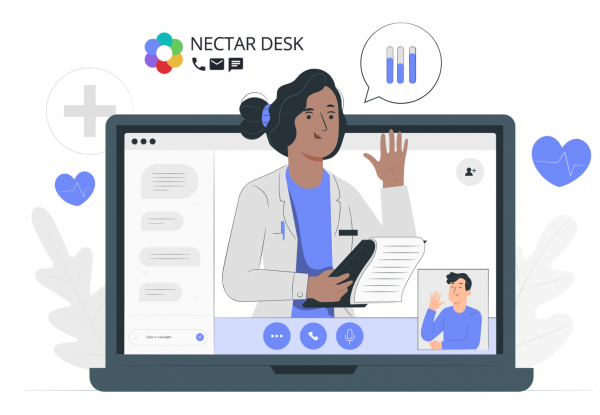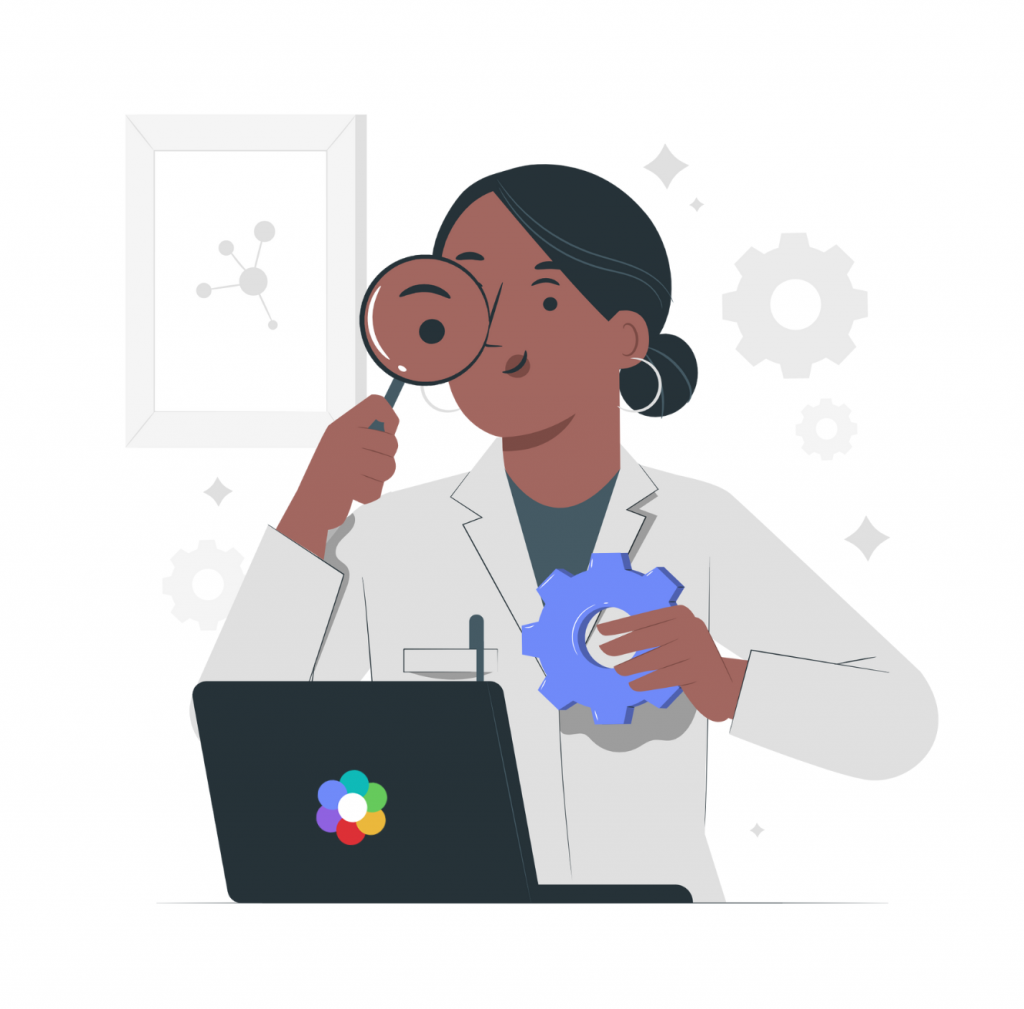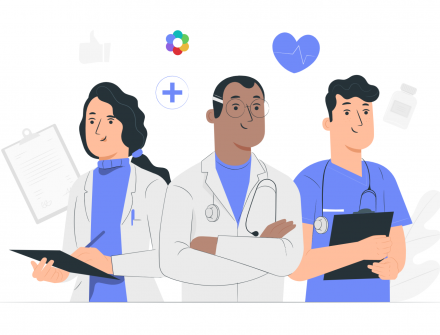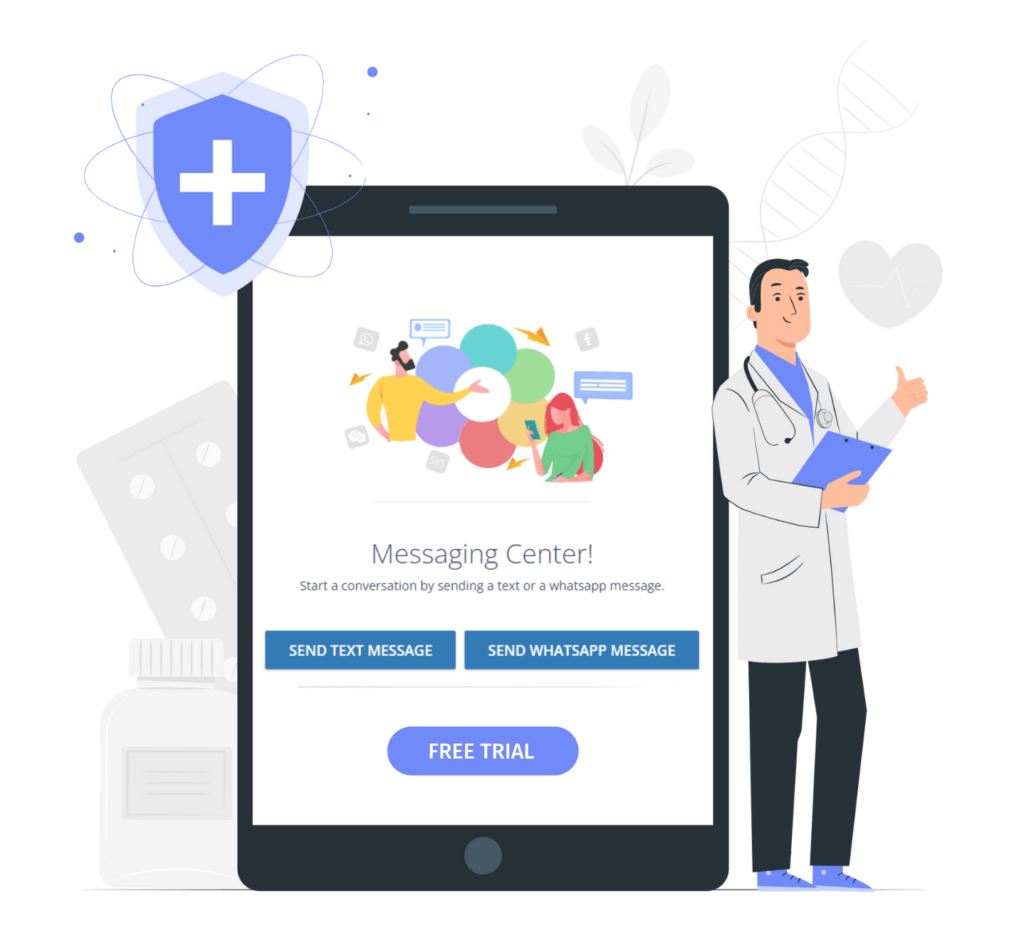The Value of Healthcare Call Centers: How They Benefit Patients and Providers

The process of finding and connecting to a healthcare provider starts with a patient’s journey. Healthcare call centers strive to make this process easier, and the customer center representatives are the ones who handle the initial contact and do their best to make it as stress-free as possible for the patient. These centers are the first point of contact for patients and their families, and they play a crucial role in ensuring that patients receive the care they need.
In this comprehensive guide, we will explore the importance of healthcare call centers, their benefits for patients and medical providers, and the challenges they face. We will also discuss best practices for call centers and the future of this essential service.
Introduction to Healthcare Call Centers
Healthcare call centers are specialized call centers that provide medical services to patients. These call centers are staffed by trained professionals who are knowledgeable about medical procedures, insurance policies, and healthcare regulations. Call center agents are responsible for answering patient inquiries, scheduling appointments, providing medical advice, and directing patients to the appropriate medical services. It means that healthcare providers should have up-to-date call center software with advanced functionality.
The goal of healthcare call centers is to provide patients with prompt and accurate medical services. These call centers are available 24/7, which means that patients can access medical services at any time of the day or night. Healthcare call centers also provide patients with a convenient way to access medical services without having to visit a hospital or clinic.
The Role of Healthcare Call Centers in Medical Services
The role of healthcare call centers in medical services cannot be overstated. Call centers are the first point of contact for patients, and they play a critical role in ensuring that patients receive the care they need. Call center agents are responsible for answering patient inquiries, scheduling appointments, providing medical advice, and directing patients to the appropriate medical services.
Call centers also play a critical role in managing patient information. Call center agents are responsible for updating patient information, including medical history, allergies, and medications. This information is critical for medical providers, as it ensures that patients receive the correct medical treatments.
Furthermore, healthcare call centers are responsible for managing patient appointments. Call center agents are responsible for scheduling appointments, reminding patients of upcoming appointments, and rescheduling appointments if necessary. This ensures that patients receive timely medical care and reduces the risk of missed appointments.
Benefits of Healthcare Call Centers for Patients and Medical Providers

Healthcare call centers provide numerous benefits for patients and medical providers. For patients, healthcare call centers provide a convenient way to access medical services. Patients can access medical services from the comfort of their homes, without having to visit a hospital or clinic. This is especially beneficial for patients who live in remote areas or have mobility issues.
Healthcare call centers also provide patients with access to medical professionals. Call center agents are trained professionals who can provide medical advice and direct patients to the appropriate medical services. This ensures that patients receive the correct medical treatments and reduces the risk of medical errors.
For medical providers, healthcare call centers provide numerous benefits as well. Call centers can help medical providers manage patient information, schedule appointments, and provide medical advice. This allows medical providers to focus on providing medical care, rather than administrative tasks.
Decreasing the Administrative Expenses
Healthcare is undoubtedly an expensive and competitive field, so providers strive to reduce costs as much as possible. Outsourcing healthcare call centers is one way to decrease overhead costs, as opposed to hiring and training in-house staff, which can be costly. Moreover, it also helps to cut back on office costs, such as phone bills, electricity bills, and upkeep.
Enhanced Participation
The personnel staffing healthcare call centers are the first point of contact for a healthcare service provider. The agents there have a knack for forming a personal connection with their patients, diminishing any feelings of uneasiness, and making sure that the individual is acknowledged and appreciated, which then enhances the relationship between the patient and the provider.
Referring to more people has become a growing trend. For a healthcare provider, the role of healthcare call centers is very important when it comes to raising brand awareness. These centers address the questions and problems of each patient, striving to provide satisfactory solutions that create a favorable impression of the healthcare establishment, resulting in greater referrals.
Delivering Care that is Adequate for Patients
The utmost care must be taken when dealing with patients in a call center setting. This includes helping them during medical emergencies, ensuring appointments are properly scheduled or rescheduled, providing post-care follow-ups, and more. It is important that customer service representatives understand the needs of the patient, and possess the necessary skills to handle a variety of medical scenarios. This is a necessity for those experiencing a time of distress. A decrease in the number of patients who do not show up for their appointments has been observed.
Patient engagement and attentive care can assist them in the process of determining if they should remain with a particular healthcare system or not. This is advantageous to health service providers by helping to reduce the rate of patients not showing up.
Gaining a Profit From An Investment
The investment made into call center services can yield a high return due to a growing patient base. Consequently, when the need for a healthcare provider’s facilities is great, the returns are maximized.
Obtaining Assistance with Invoicing
Call center representatives in the healthcare field inform patients about the cost of services and if it has been modified in any way. Furthermore, several customer service offices provide billing assistance. Submission of an insurance claim is required in order to receive compensation for covered losses.
Navigating the intricacies of filing an insurance claim can be a daunting and time-consuming endeavor for patients. Fortunately, healthcare call centers are available to assist individuals with insurance and reimbursement, allowing for a more efficient and stress-free process.
Enhancement of Medical Services
In the healthcare sector, there is a need for improvement in the services that are being provided. By making alterations, it is possible to create a better experience for everyone involved. This can be achieved by focusing on the quality of care, as well as the accessibility of services. By doing so, it will be possible to ensure that individuals are receiving the best possible care.
Improvement is always possible, and that includes healthcare services. Patient call centers assist healthcare providers and businesses to assess customer satisfaction through regular surveys, so the providers can identify what needs to be improved.
Healthcare Call Centers vs. Traditional Medical Services
Healthcare call centers differ from traditional medical services in several ways. Traditional medical services require patients to visit a hospital or clinic to access medical services. This can be inconvenient for patients, especially those who live in remote areas or have mobility issues.
Healthcare call centers, on the other hand, provide patients with a convenient way to access medical services. Patients can access medical services from the comfort of their homes, without having to visit a hospital or clinic. This saves patients time and reduces the risk of missed appointments.
Furthermore, healthcare call centers provide patients with access to trained medical professionals who can provide medical advice and direct patients to the appropriate medical services. This ensures that patients receive the correct medical treatments and reduces the risk of medical errors.
Call Center Software for Hospitals: Features and Benefits
Call center software for hospitals provides numerous features and benefits. These features include call routing, call queuing, call recording, and call reporting. Call routing ensures that calls are directed to the appropriate call center agents, while call queuing ensures that patients are not left waiting on hold for extended periods. Such types of software for hospitals are innovative solutions that streamline communication between patients, healthcare providers, and administrative staff. This software is designed to improve patient experience, increase operational efficiency, and optimize resource allocation.
Call recording allows call center agents to review calls and ensure that they are providing accurate medical advice. It enhances medical providers with valuable data on call volume, call duration, and call outcomes. This data can be used to improve call center performance and patient care. Here are some of the key features and benefits of call center software for hospitals.
- Omnichachannel communication: Call center software enables hospitals to communicate with patients through multiple channels such as voice, SMS, emails, live chat, messengers, and even social media. This helps patients to choose their preferred mode of communication and receive timely updates about their appointments, test results, and other healthcare-related information.
- Scheduling and appointment management: Call center software enables hospitals to manage patient appointments, reschedule them, and send reminders to patients. This helps hospitals to reduce no-show rates and optimize resource allocation.
- Patient triage and routing: Call center software enables hospitals to route patient calls to the right department or healthcare provider based on their medical condition and urgency. This helps hospitals to provide timely and appropriate care to patients.
- Reporting and analytics: Call center software enables hospitals to track and measure various metrics such as call volume, response time, and patient satisfaction. This helps hospitals to identify areas for improvement and optimize their call center operations.
The Future of Healthcare Call Centers
The future of healthcare call centers looks bright. As technology continues to advance, healthcare call centers will become even more efficient and effective. Call center software will continue to improve, providing call center agents with valuable data on patient needs and call outcomes.
Furthermore, healthcare call centers will continue to play a critical role in managing patient information and scheduling appointments. As the population ages and the demand for medical services increases, healthcare call centers will become even more important.
Challenges Faced by Healthcare Call Centers
Despite the numerous benefits of healthcare call centers, they face several challenges. One of the biggest challenges is managing call volume. Healthcare call centers receive a large volume of calls on a daily basis, which can be overwhelming for call center agents.
Another challenge is providing accurate medical advice. Call center agents are not medical professionals, which means that they may not have the necessary knowledge to provide accurate medical advice. This can lead to medical errors and put patients at risk.
Best Practices for Healthcare Call Centers
To overcome these challenges, healthcare call centers must implement best practices. One best practice is to provide call center agents with ongoing training. This ensures that call center agents have the necessary knowledge to provide accurate medical advice and manage patient information.
Another best practice is to implement call center software that provides call center agents with valuable data on patient needs and call outcomes. This data can be used to improve call center performance and patient care.
Healthcare call centers are an essential component of the healthcare industry, providing patients with access to medical advice, appointment scheduling, and other healthcare-related services. Here are some best practices for healthcare call centers to improve patient experience and optimize operations.
- Patient-Centered Approach: Healthcare call centers should adopt a patient-centered approach, focusing on providing personalized care to patients. Call center staff should be trained to address patient needs and concerns and provide accurate and timely information.
- Staff Training and Development: Healthcare call center staff should receive regular training and development to improve their skills and knowledge. This helps to ensure that they are equipped to handle patient inquiries and provide accurate and timely information.
- Quality Assurance: Healthcare call centers should have a quality assurance program in place to monitor and evaluate the quality of service provided to patients. This helps to identify areas for improvement and ensure that patients receive high-quality care.
- Data Analytics: Healthcare call centers should use data analytics to track and measure various metrics such as call volume, response time, and patient satisfaction. This helps to identify areas for improvement and optimize call center operations.

Wrapping Up
In conclusion, healthcare call centers are the unsung heroes of medical services. They provide patients with a convenient way to access medical services and ensure that patients receive the care they need. Call centers also provide medical providers with valuable data on patient needs and call outcomes, which can be used to improve patient care.
Despite the challenges faced by healthcare call centers, they continue to play a critical role in managing patient information and scheduling appointments. As the population ages and the demand for medical services increases, healthcare call centers will become even more important. It is essential that we recognize the importance of healthcare call centers and ensure that they have the resources they need to provide high-quality medical services.
The benefits of call center software for hospitals are numerous. It helps hospitals to improve patient experience, increase operational efficiency, and optimize resource allocation. It also helps hospitals to reduce no-show rates, improve patient outcomes, and enhance patient satisfaction. Overall, call center software is a must-have tool for hospitals looking to provide quality healthcare services to their patients.




